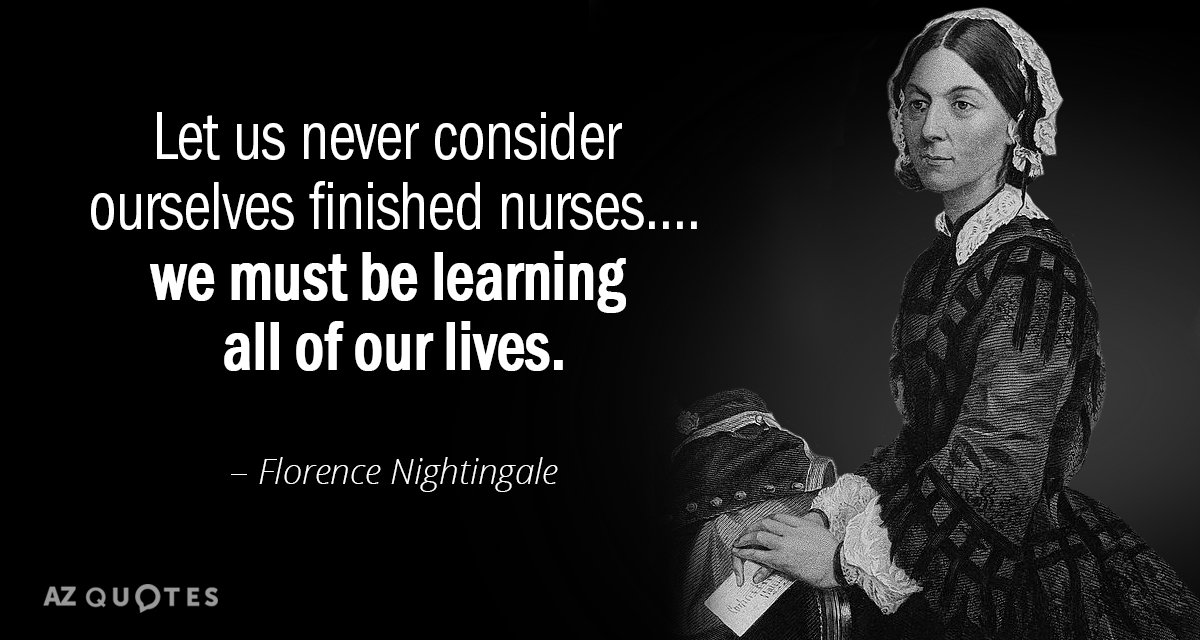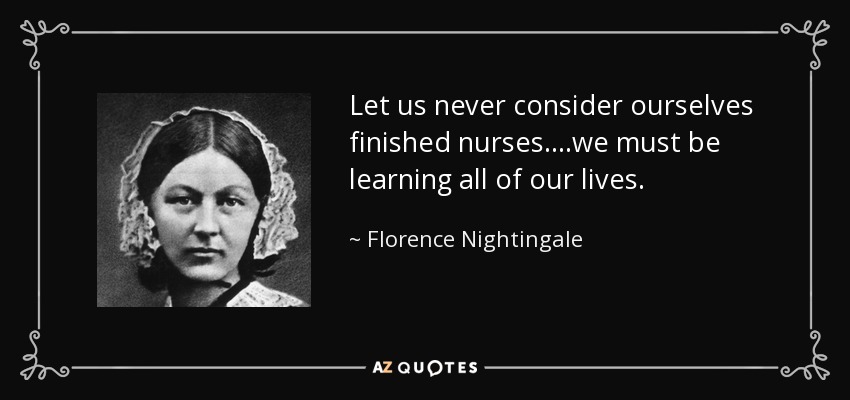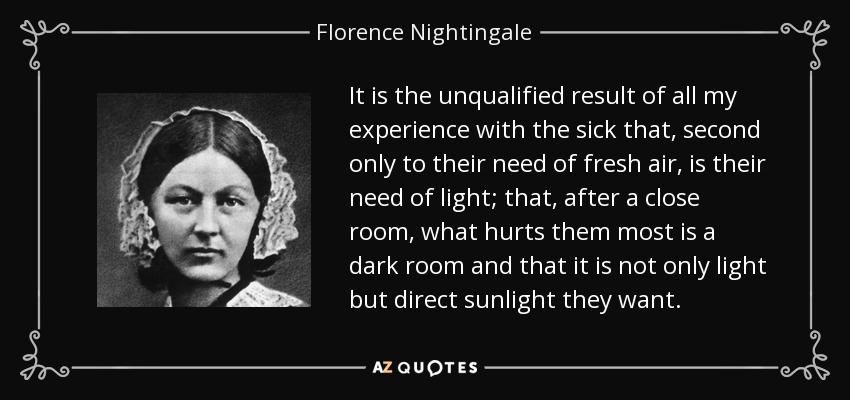Anyone who attended school in years gone by has heard of this remarkable woman. The woman who came from a privileged British background and gave birth to the modern movement we know as Nursing
If only we looked at her matter of fact approach to the care of the ill, perhaps we would not be in the mess we find ourselves in today where commonsense has been obliterated by scientific models and political agendas.
"I had a debate with a younger relative who is a Doctor and of a young vintage where he suggested that old fashioned remedies have no place in modern medicine.
To say that I was angry would be an understatement. "
So said one of our commenters, Blythe.
The nephew's argument was that she was trapped in old ideas, and outmoded concepts and that drugs were the only way forward. He suggested that things that his Aunt had been brought up to believe were cures were nothing better than foolish medieval folklore and that he knew better. After all, he was a Doctor.
I still believe in the old remedies and the reason I do so?
Because they work.

Before the Doctor was born, we called it common sense. Nowadays, they call it folklore and quackery.
There was a time when leeches were the way to solve all ills. Pop a few leeches onto your body and drain the poisonous blood from your system. THAT was the science in the scientific world a 100 years ago.

Malaria was so named because the scientific and medical brains believed that malaria was transmitted by ": bad air. " And the name stuck. Mal - Bad. Aria - Air.
Until they discovered that it was because someone was bitten by a mosquito and that bad air had nothing to do with it. It was the mosquito bite.
In days gone by, medical " experts " have learned that so many things that have turned out to be a load of twaddle.

Yet, he proclaimed, MODERN medicine has moved on.
Has it?
Injecting little babies and pregnant women with untested so-called vaccines? Using fear to bring compliance?

Florence Nightingale faced the contempt of the medical profession in her time. How she fought the bias against women and the introduction of new ideas and how, inevitably, she proved the medical " experts " wrong.
But we are told to move with the times. That was a different era.
But she was right.
Just as WE know that we are right today.
In the meantime, to the nephew Doctors of the world, you are wrong. You are so wrong that it amazes me that you made it through your medical degrees without realizing that wisdom is gained from experience, not the classroom.
Back in 1820, Florence Nightingale was born into British aristocratic family in the city of Florence, Italy. Hence her name. Her parents were open-minded and encouraged her to think for herself. I suppose these days we would call it " critical thinking. "
By the age of 30, she had developed an interest in helping the sick and the poor. I cannot, in one article, explore the work of her early years or, in fact, her later years, so this is just a brief overview of what led her to become the Lady with the Lamp.
As she matured into a young woman, she felt compelled to leave her privileged life and head to the battlefields of Crimea and pursue what we now know is the gift of nursing.

Nightingale arrived in Scutari early in November 1854. Her team found that poor care for wounded soldiers was being delivered by overworked medical staff in the face of official indifference.
"The very first requirement in a hospital is that it should do the sick no harm." ~ Florence Nightingale
Does that sound familiar? All these years later?
Is this folklore or is it fact from history?
Nightingale believed that the death rates were due to poor nutrition, lack of supplies, stale air, and overworking of the soldiers. After she returned to Britain and began collecting evidence before the Royal Commission on the Health of the Army, she came to believe that most of the soldiers at the hospital were killed by poor living conditions.
She suggested
- Ventilation and warming
- Health of houses
- Petty management (stress reduction)
- Noise (stress reduction)
- Variety
- Taking food
- What food?
- Bed and bedding
- Light (especially sunlight)
- Cleanliness of rooms and walls
- Personal cleanliness (handwashing)
- Chattering hopes and advices
- Observation of the sick"
In other words, sunshine, fresh air, kindness and caring with a lavish dose of hygiene on the side.

This experience influenced her later career when she advocated sanitary living conditions as of great importance. Consequently, she reduced peacetime deaths in the army and turned her attention to the sanitary design of hospitals and the introduction of sanitation in working-class homes.
Two foundational standards that Florence Nightingale introduced in the initiation of nurse training were:
- the ‘Technical record’– the mechanics and tasks of nursing and
- the ‘Moral record’– the character aspects of the nurse, her attitudes, behaviours, the thoughts and feelings she had about her work and the way she did it.
But I must bring it back to my original question. What can Florence Nightingale teach us about Covid?
I suppose that Florence Nightingale taught us that how we live is more important than how our governments want us to live. A clean life. A happy life and a life where a hand is held and a heart embraced.
In short, to be loved, cared for and nurtured.
None of this isolation and imprisonment.
Our governments want to lock us up and keep us in lockdown and a prison of our minds and souls and bodies.
Florence Nightingale told us that fresh air and sunshine can liberate us.

She taught us that having hope and positivity was paramount to good health. That fresh air and sunshine were our friends. That being locked up, locked down or locked in dark corners of our minds are detrimental to our health and wellbeing.
For myself and many others, I would suggest that freedom to live in sunshine and fresh air is better than the prison of death and that washing your hands in water and soap is better than washing your hands in the blood of those you encouraged to die because you believed in " science. "
co written by Blythe.
BLOG COMMENTS POWERED BY DISQUS



















































